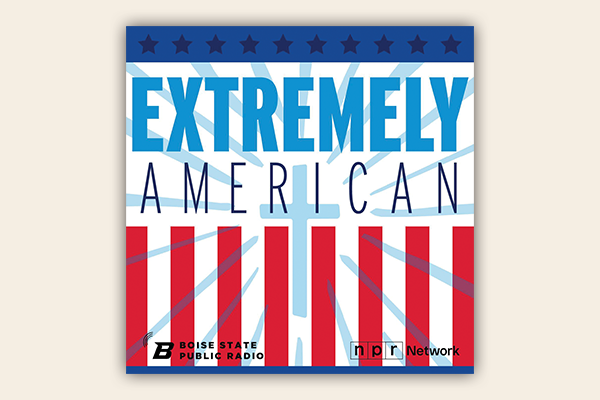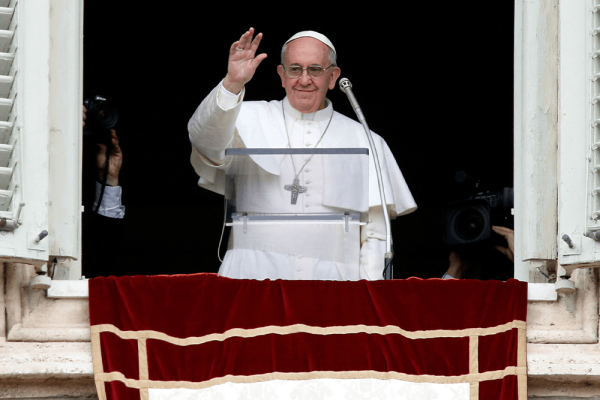In the Advent hymn “People Look East,” Eleanor Farjeon writes, “Make your house fair as you are able, / Trim the hearth and set the table. / People, look east and sing today: / Love, the guest, is on the way.” The lines from this hymn are a pointed and poetic reminder of the centrality of hospitality as an Advent discipline. Advent is a time to prepare our homes and hearts to receive God and welcome the Christ child.
Usually, Advent hospitality is interpreted as a call to welcome relatives and friends to our homes for the holiday. But Advent hospitality is not only about personal or familial relationships but ultimately about how our homes and our neighborhoods should be sites that welcome strangers and unhoused people.
I live in Los Angeles, where city officials are ramping up enforcement of a new municipal ordinance, Los Angeles Municipal Code 41.18, which bans thousands of people who are unhoused from sitting, lying, sleeping, or building makeshift shelters near doorways, driveways, freeways, or even community sites such as parks, libraries, and congregate shelters. A starker contrast to the Advent discipline of hospitality is hard to imagine.
In Matthew 25:35, Jesus identifies himself with the stranger we welcome or exclude. Advent hospitality extends beyond our personal relationships and into the ways we structure our neighborhoods and our common life. But in the United States, our politics are driven by “NIMBYism” (“not in my backyard!”), as housed individuals and politicians not only demand the exclusion of unsheltered people from public spaces but also oppose the creation of shelters and permanent, affordable housing in our neighborhoods.
Advent hospitality requires a politics of proximity: that we make space for the Christ child by making space for neighbors, including unhoused people, in our own neighborhoods.
Advent hospitality also requires repentance. Preparing our hearts for God by “trimming the hearth and setting the table” means rejecting attachments and repenting from the false beliefs that keep us from showing hospitality toward our neighbors. NIMBYism — the fear of proximity to those who are poor or unlike us — is one such false belief. A related false belief that requires repentance? The insistence that our homes are our own. In reality, the colonial history of our land belies this erroneous belief. What does it mean to prepare our homes for Jesus considering our homes are built on stolen, Indigenous land?
I live in the San Fernando Valley, where the history of settler colonialism is written across the landscape. The Valley was claimed by the Catholic Mission San Fernando, from which it takes its name. When the mission’s lands were sold, the majority was in one large land grant — but one smaller package was sold to three Indigenous people. My home is on this land that has passed between Indigenous and colonial hands, through conquest and commerce. When a residential neighborhood was constructed here in the 1960s, the original restrictive covenants banned the sale of the property to Black people and Jews.
To practice Advent hospitality in my home, on this land, requires repentance from both the violent colonialism that brought it into my possession as well as the segregationist impulse surrounding its construction. It is not enough for me to simply claim I am “resisting” NIMBYism in my city or the surrounding neighborhood because I disagree with Code 41.18. Hospitality requires action that hits closer to home.
Hospitality demands we hold our homes and property lightly. Hospitality also demands that we acknowledge the history of the land where we live and what we owe to one another because of that history. That may take the form of land acknowledgments or “Land Back” and reparations initiatives — especially for large institutions. But for me, as a homeowner, a first step toward repentance and reparation is the practice of openness and hospitality — specifically when it comes to the land I “possess.”
For me and my family, this has looked like taking part in a host home program where homeowners invite people in need of shelter into their homes. We’re also planning to dedicate space in our yard to new affordable housing by building an accessory dwelling unit. These are some first steps towards rethinking our relationship to land ownership and hospitality. But these are only first steps; these steps do not systemically change land ownership, nor do they explicitly prioritize the needs of Indigenous people. However, this shift in thinking about land ownership points toward what is required to live out the radical repentance of Advent hospitality.
To borrow a term from Catholic theology, Advent hospitality requires us to think of the “universal destination of goods” — the reality that property exists for the sake of those in need, not simply for its owners. Personally, Advent forces me to reckon with the ways my home does not “belong” to me considering the land’s history and considering the needs of others. While it is in my possession, I have a responsibility to use it for the good of others — especially those who have been harmed by historical injustices.
We prepare space for Jesus this Advent season by making space for our neighbors. We prepare our hearts for the coming of the Christ child by uprooting the beliefs about land that get in the way of such space-making. These radical practices of hospitality prepare us to receive “Love, the guest, who is on the way.”
Got something to say about what you're reading? We value your feedback!







